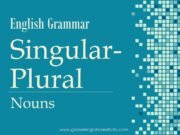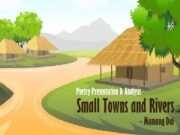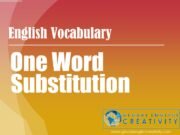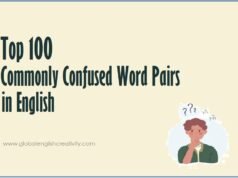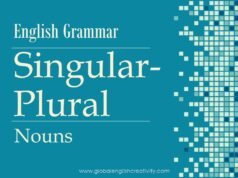| USES OF ‘MUST’ ‘OUGHT TO’ |
MUST
| COMPULSION You must attend the lectures regularly. You must solve all 20 questions. They must pass the fitness test first. Johnny must be there before 11 o’clock. |
| OBLIGATION We must respect our teachers. He must help his brother in this situation. You must follow all traffic rules. You must wear seat belt while driving. |
| DETERMINATION I must stand first in college this year. John must become a Software Engineer. All nations must fight against Kovid 19. We must learn computer for better future. |
| ADVICE You must use mask wherever you go. She must inform her mother about illness. We must sanitize our hands frequently. They must avoid playing mobile games. |
| THREAT I must call police if you find guilty again. I must hack the data in your computer. You must not live in this apartment. I must kidnap your son. |
| INTENTION I must submit my profile next week. We must have the house painted soon. |
| NECESSITY You must remove your shoes outside. We must measure blood oxygen level daily. |
| PROHIBITION You must avoid smoking at public place. You must not carry mobiles in exam hall. |
OUGHT TO
| EXPECTATION/ADVICE You ought to change your behaviour. Marilyn ought to wake up at 5.00 AM. Students ought to go to library in queue. He ought to avoid eating fast foods. |
| PROBABILITY We ought to have completed it by the evening. George ought to deliver a speech soon. The guests ought to arrive by train. He ought to get a reply tomorrow. |
| OBLIGATION We ought to protect birds and animals. You ought to listen carefully before you write. You ought to pay your loan installments. They ought to support tsunami victims. |
| GUESS The books ought to be enough for the whole school. Our football team ought to win today. All teachers ought to go on tour next week. Smith ought to start his magic show again. |
also see
used to/need to/dare to
have to/has to
may/might
will/would
shall/should
can/could
TENSES
DIRECT-INDIRECT SPEECH



